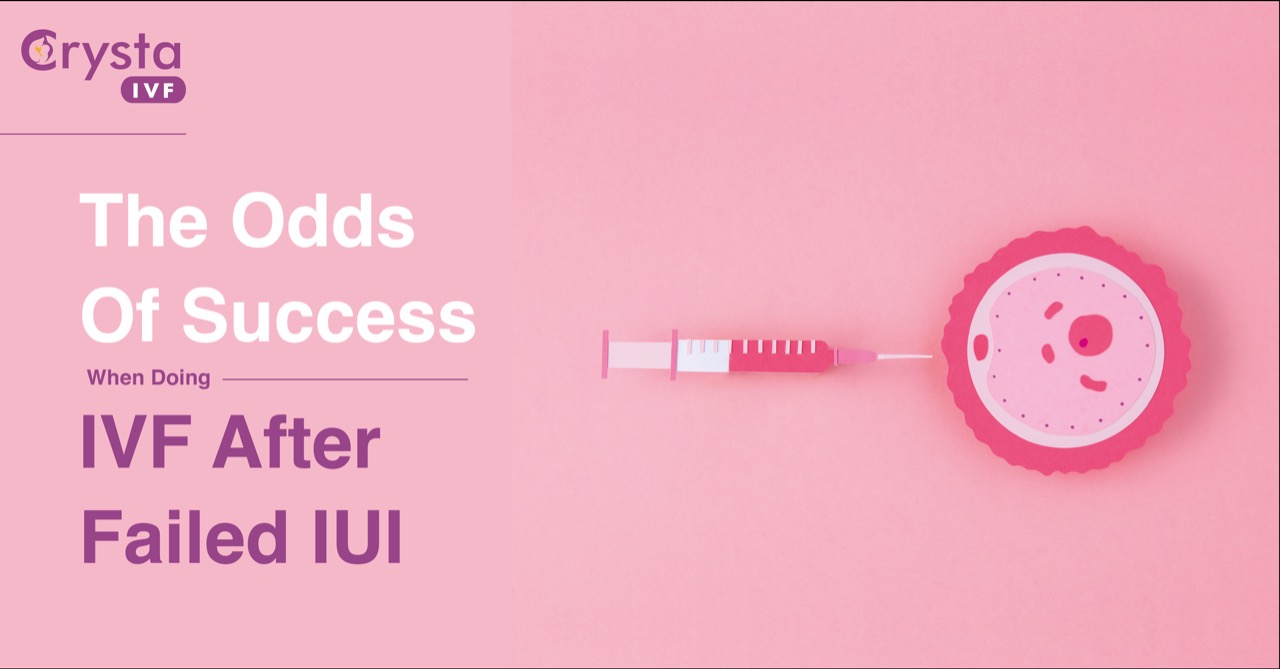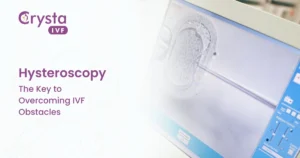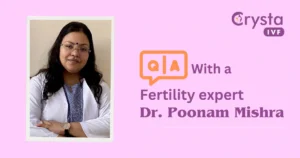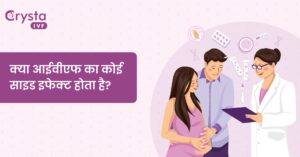The Intrauterine insemination (IUI) cycle is often used as a good first attempt at infertility treatments. It is a cheaper and less invasive procedure than the IVF cycle and can have a good success rate.
Although many women do conceive after an IUI cycle, it may not be the first time around. Those who do not conceive on the first IUI cycle are likely to be advised to repeat other treatment cycles or otherwise are recommended advanced fertility treatment such as In Vitro Fertilization (IVF).
IUI and IVF, both of these treatments involve different drugs, medications, and other therapies that can be effective at helping treat infertility. But how do they compare? Which one should you choose? And what is the success rate with IVF when you have failed IUI before?
Let’s look at some of the facts about both procedures so that you can make an informed decision for your parenthood journey.
Understanding Intrauterine Insemination (IUI)
Intrauterine insemination (IUI) is a fertility treatment that involves placing sperm inside a woman’s uterus via a thin catheter to facilitate pregnancy. IUI can be an effective treatment for couples who are trying to conceive but are unable to do so through traditional intercourse.
IUI is a popular and low-cost artificial insemination that is used to treat both male & female factor infertility.
When to Consider IUI?
IUI treatments are often recommended to couples who are unable to conceive through natural means. This include:
- Unexplained Infertility
- Cervical factor infertility
- Ovulation dysfunction
- Male Factor Infertility (Low sperm count, low sperm motility, etc.)
- Unexplained Infertility
- Endometriosis
Your fertility doctor might also recommend IUI treatment when other fertility medications, timely intercourse, and therapies have failed to help you get pregnant.

Fertilization takes place when the sperm penetrates the egg and combines with the cell membrane of the egg. However, fertilization does not always occur on the first attempt. For example, many women will have several failed IUI cycles before being able to get pregnant. Once sperm penetration has occurred, it takes an average of 3 weeks for an egg to become fertilized.
Success Rate of IUI
Though infertility treatments like IUI can be successful for many couples, however, IUI success rates vary depending on several factors such as the patient’s overall health, both partners’ age and fertility status, and whether extra assistance with pregnancy is provided through donor eggs or sperm.
Many factors contribute to the success of IUI procedures, so it is important to consult with a medical professional to determine what route is best for you and your family.
Understanding In Vitro Fertilization (IVF)
In vitro fertilization (IVF) or test tube baby is a process in which eggs are removed from a woman’s ovaries and fertilized with sperm in a laboratory. The resulting embryos are then implanted into the woman’s uterus. IVF can be an effective treatment for couples who are trying to get pregnant but are unable to do so through conventional intercourse.
IVF is a type of assisted reproductive technology that involves the manipulation of eggs, sperm, and embryo to achieve pregnancy. One cycle of IVF generally takes around 4-6 weeks as it involves a set of different procedures. This include –
- Consultation & fertility tests
- Ovarian stimulation
- Egg retrieval
- Sperm Collection
- Fertilization or Insemination in a lab
- Embryo transfer
- Pregnancy test
When to Consider IVF?
IVF is an effective fertility treatment option for those who are unable to get pregnant even after unprotected intercourse for over a year. IVF is also recommended when medical conditions make it impossible to conceive through natural processes.
Here are the reasons when to consider IVF or test tube baby treatment:
- Obstruction in fallopian tubes
- Ovulation disorders
- Pelvic inflammatory disease
- Health conditions like Polycystic Ovary Syndrome (PCOS)
- Hormonal problems
- Low sperm count
- Malformed sperm
- Unexplained infertility
- Post-cancer fertility treatment
- High risk of genetic disease
Depending on your cause of infertility, medical condition, and history of fertility treatments, your fertility doctor may suggest IVF treatment as it may have a higher chance of a successful pregnancy than that of previous infertility treatments.
Success rate of IVF treatment
While IVF success rates vary, there are several key factors that can influence the overall outcome. These include the health of both partners, as well as their ages and fertility status. Additionally, whether or not extra assistance with pregnancy is provided (via donor eggs or sperm) can also play a role.
In certain IVF cases, the frozen embryo transfer success rate is 10% higher than that of fresh embryo transfer.
IVF success rates also vary by age. Women who are younger than 35 have seen more successful IVF cycles than those who are older.
Chances of successful IVF treatment after failed IUI
If you’ve previously undergone unsuccessful IUI cycles, IVF treatment may be a more effective option for you to achieve pregnancy. With a higher success rate than IUI, IVF may be the next best step for you.
This method has been around since 1984 and has become increasingly popular over time due to its success rate. Millions of babies have been born worldwide using this method.

IVF also does however have some advantages over other methods of assisted reproduction including higher rates of pregnancy and lower costs per pregnancy.
Despite that, there are certain infertility-related cases where IUI is not an ideal treatment, such as –
- Blocked fallopian tubes
- Very low sperm count
- Severe endometriosis
- When a gestational carrier is required
- Post-cancer fertility treatment
- When cryopreserved eggs are used
In such cases, IVF treatment might be the best and only option to achieve a healthy pregnancy and a healthy baby.
Should You Opt For IVF Treatment?
There are a number of key differences between IVF and IUI that women should be aware of before making a decision about which fertility treatment to pursue. IVF is comparatively more expensive and invasive than IUI, but it also has a higher success rate. IUI is less expensive and less invasive, but it also has a lower success rate.
Therefore, if you’re debating between the two, it’s crucial to speak with the fertility expert at Crysta IVF at the best IVF center in Pune about your goals, how long they’ll last, and if one procedure is more suitable for you.
Fertility experts at Crysta IVF have decades of experience, therefore, can help you weigh the risks and potential side effects of each procedure against your goals to determine which is best for you.




